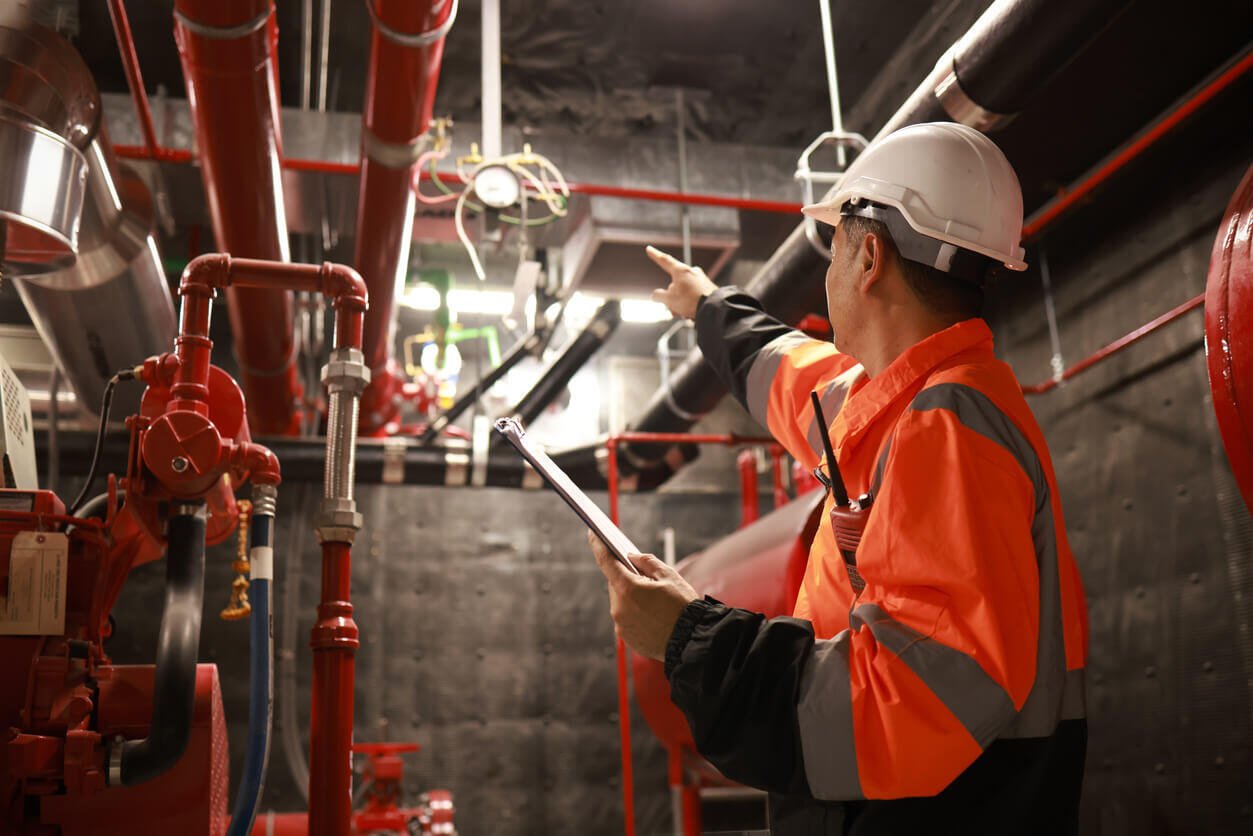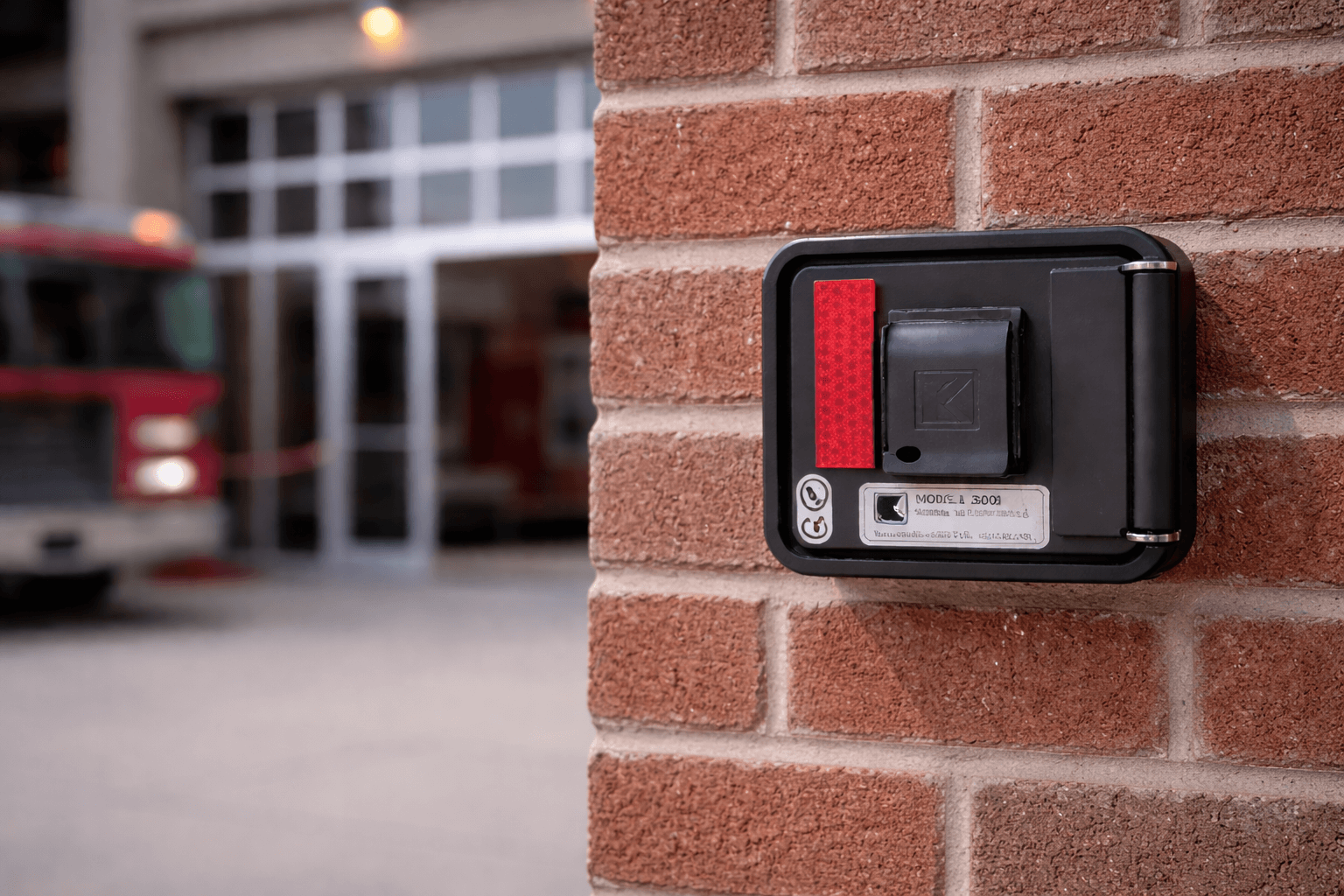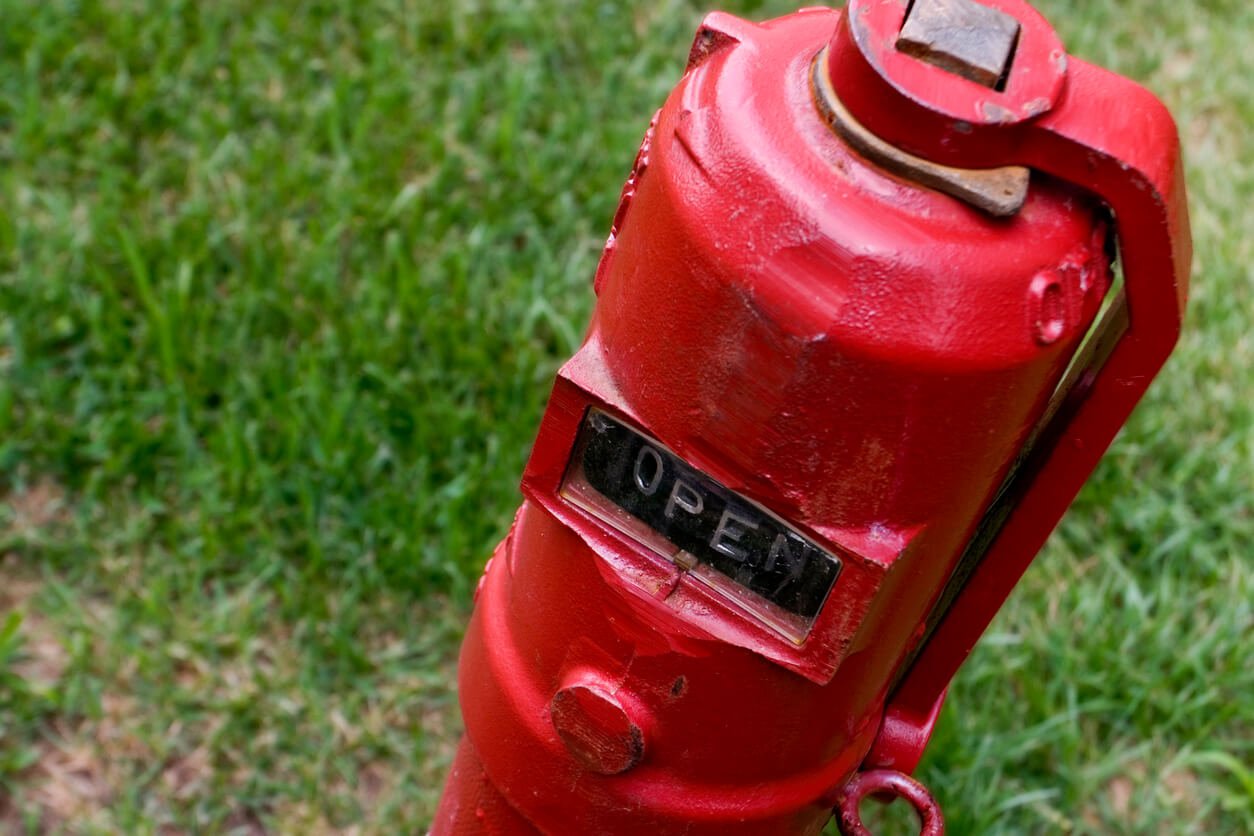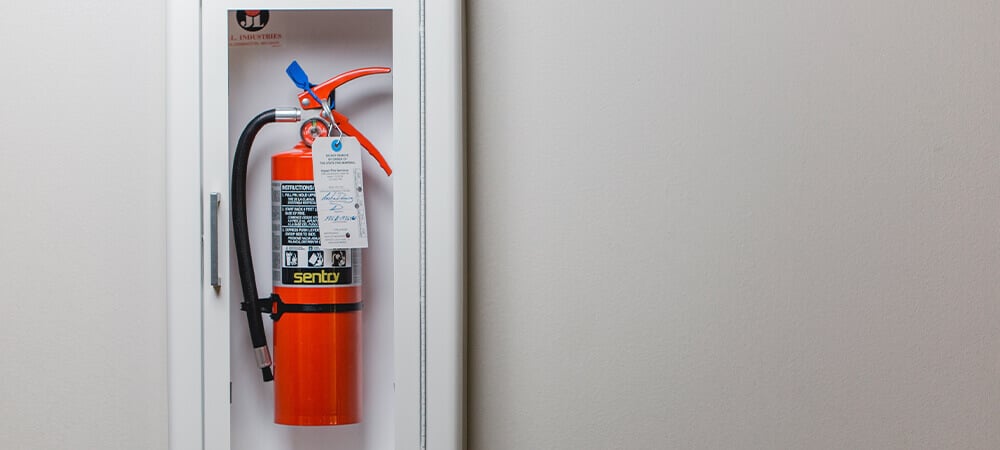Top 4 Reasons Businesses Should Invest in Advanced Fire Protection Systems
- Mitigate property damage (and the financial ramifications that come with it)
- Remain compliant
- Improve operational efficiency
- Maintain strong business reputation
Fire protection is not just about meeting regulatory requirements—it's a critical investment in your business's future.
As building technologies evolve and operational risks increase, advanced fire protection systems have become essential tools for safeguarding assets, ensuring business continuity, and protecting lives.
Modern fire protection solutions offer sophisticated features that can dramatically reduce the risk of catastrophic losses, minimize downtime, and even lower insurance premiums.
In this article, we'll explore why investing in advanced fire protection equipment is a necessary expense and a strategic decision that can yield substantial returns.
Advanced Fire Protection Systems Are Good For Revenue
Fire incidents pose a significant risk to businesses, with consequences extending far beyond immediate property damage.
And those consequences are costly.
Mitigate Rising Risks and Financial Consequences of Fire Incidents
The frequency and severity of fire-related disasters are increasing due to factors such as climate change, aging infrastructure, and human error.
In fact, over a nine-year period, non-residential fires increased 22%, according to the U.S. Fire Administration.
As you’ve likely seen on the news, the intensity of wildfires is also heating up.
While Environmental Protection Agency data shows that there haven’t necessarily been more wildfires in recent years, the severity of those fires and the amount of land burned has gone up dramatically.
For example, the Los Angeles wildfires reportedly burned over 57,000 acres of land, destroying 18,000 structures and buildings. Experts expect this catastrophe to cost upwards of $250 billion. A staggering amount, considering that the latest research from NFPA found that fires in the U.S. caused $23 billion in property damage in 2023.
The financial toll of a fire includes direct costs like structural repairs and equipment replacement, as well as indirect costs such as business downtime, lost revenue, and supply chain disruptions.
Even with insurance coverage, businesses often face significant out-of-pocket expenses due to deductibles, policy limitations, and increased premiums following a fire incident. In severe cases, companies may struggle to recover entirely, losing customers or market share.
Advanced fire protection systems mitigate these risks by detecting and addressing fires early, reducing the potential for catastrophic losses.
Avoid Compliance and Liability Errors
Compliance with fire safety codes and regulations is essential for avoiding fines, lawsuits, and reputational damage.
To ensure compliance, building owners and facility managers should familiarize themselves with the following:
- Local Fire Codes: Contact your local fire marshal's office or visit their website to access city or county fire code ordinances. Many fire marshals post inspection checklists online, which can be invaluable for preparation.
- State Fire Codes: Each state has its own fire safety requirement. For example, the Florida Fire Prevention Code is updated every three years and is enforced by local fire officials. Check your state's fire marshal website for similar information.
- National Fire Protection Association (NFPA) Standards: Key NFPA standards to be aware of include NFPA 1: Fire Code; NFPA 101: Life Safety Code; NFPA 72: National Fire Alarm and Signaling Code; and NFPA 13: Standard for the Installation of Sprinkler Systems.
- International Building Code (IBC): This code sets minimum requirements for building design and construction, including fire protection systems.
Failure to comply with these codes and standards can lead to severe consequences, like legal liability, substantial fines and penalties, increased insurance premiums, and reputational damage.
Investing in advanced fire protection systems (and working with a team that’s current on all the latest code requirements) ensures compliance with these evolving standards, reducing liability risks while demonstrating a commitment to safety.
Achieve Tangible Fire Safety ROI
The return on investment (ROI) for advanced fire protection systems is substantial.
These systems provide hard financial benefits by minimizing property damage during a fire. For instance, a NFPA study found that the average loss per fire was 62% lower than in spaces with no sprinkler system.
Additionally, advanced systems help maintain business continuity by preventing extended downtime. Early detection technologies, for example, allow for faster response times, limiting disruptions and enabling businesses to resume operations more quickly.
Another key benefit is the potential for reduced insurance premiums. Insurers often offer lower rates to businesses with comprehensive fire protection measures because these systems lower the risk of extensive damage. Over time, these savings can offset the initial investment in advanced fire protection systems.
Advanced Fire Protection Systems Are Good For Business Efficiency
Advanced fire protection systems enhance safety and offer significant cost-effectiveness through improved efficiency.
Let’s take a closer look at the technology that helps make this happen.
Smart Detection and Monitoring Technologies
Smart fire detection systems leverage cutting-edge technologies to provide more accurate and efficient fire protection.
For example, IoT integration enables real-time monitoring and control of fire suppression and life safety systems, resulting in faster responses and better coordination during emergencies. And AI and machine learning algorithms analyze data from multiple sensors, distinguishing between false alarms and actual fires, which reduces unnecessary evacuations and alarm fatigue.
These smart systems offer several key advantages:
- Earlier and more accurate fire detection through advanced optical sensors and thermal detectors
- Minimized potential damage due to quicker response times
- Predictive maintenance capabilities that alert building managers to system issues before they become major problems
By implementing these smart technologies, building owners can ensure optimal performance of their fire protection systems while reducing downtime and potential fire damage.
Addressable Fire Alarm Systems
Addressable fire alarm systems offer several advantages over conventional systems, making them a cost-effective choice for many commercial buildings.
These systems provide faster response times due to precise location information for each detector, enabling quicker and more targeted emergency responses. They also offer improved reliability with fewer false alarms, as the system can identify specific malfunctioning devices.
The benefits of addressable systems extend beyond just improved response times:
- Greater scalability and flexibility, requiring less cabling and allowing for easier expansion in larger buildings
- Simplified maintenance and troubleshooting, as each device can be tested and monitored independently
- Enhanced customization options, allowing for specific programming of system functions based on building needs
These features improve safety and contribute to long-term cost savings through more efficient operations and maintenance.
Energy-Efficient Suppression Systems
Modern fire suppression technologies contribute to energy efficiency and sustainability. Clean agent fire suppression systems offer fast and effective fire control without water, minimizing cleanup and reducing potential damage to sensitive equipment.
These systems are often more environmentally friendly and safe for occupants, aligning with sustainability goals and regulatory compliance.
Advanced Fire Protection Systems Are Good For Business Reputation
Advanced fire protection systems do more than just prevent financial losses; they also enhance a company's safety culture, reputation, and stakeholder trust.
Prioritizing fire safety demonstrates a commitment to employee well-being, boosting morale and productivity. Be sure to have dedicated fire safety training, protocols, and reinforcement tools to keep your people safe long-term.
A robust fire protection system showcases responsible corporate citizenship, building trust among customers, vendors, and the public. One way it does this is through ongoing compliance with fire safety regulations. Doing so helps avoid legal complications and potential penalties, reinforcing the company's reputation for reliability and responsibility.
By fostering a culture of safety and responsibility, businesses can strengthen their market position and build lasting relationships with stakeholders, contributing to long-term success and financial stability.
Fire Safety ROI: Get The Most Out Of Your Systems
Investing in advanced fire protection systems is a strategic decision that pays dividends in safety, efficiency, and long-term financial benefits.
As we've explored, these systems offer far more than just regulatory compliance—they provide a robust shield against potentially catastrophic losses, minimize operational disruptions, and enhance your business's reputation.
However, to truly maximize the ROI of your fire protection systems, it's crucial to partner with experienced professionals who understand the latest technologies and can tailor solutions to your specific needs.
Contact a fire safety expert for a comprehensive assessment of your fire protection needs.






